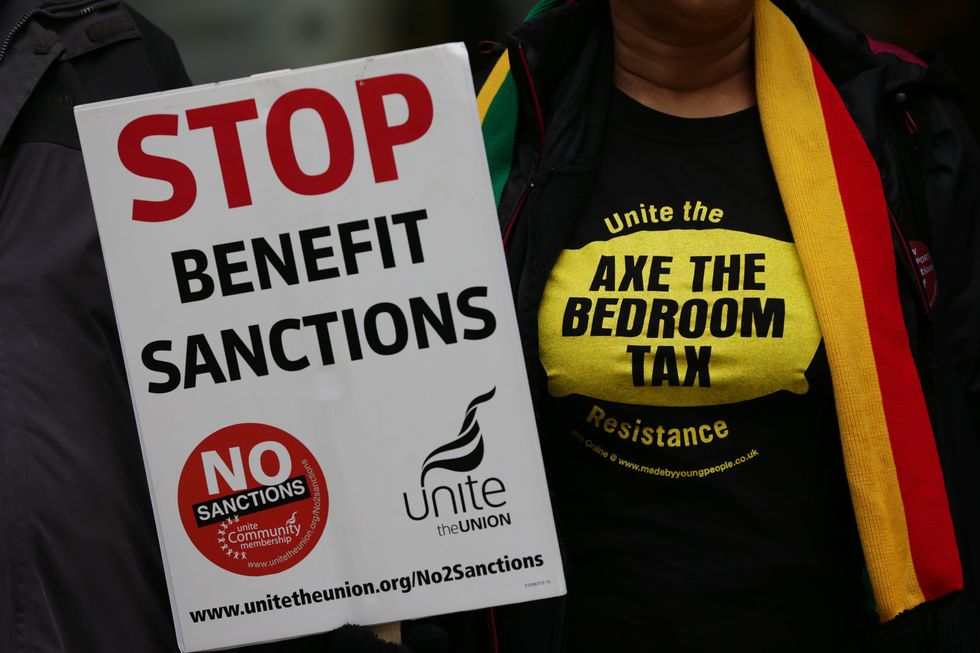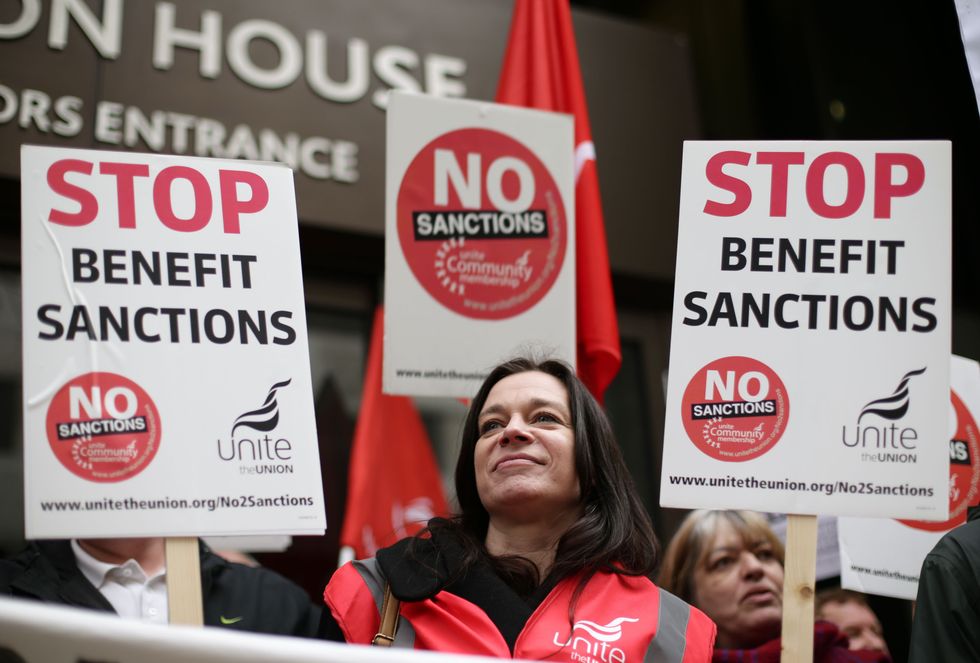A protest outside the Department for Work and Pensions in London, as part of a national day of action organised by Unite,
PA
The Department for Work & Pensions has cautioned against drawing firm conclusions from the statistics
Don't Miss
Most Read
Trending on GB News
Racism charities have expressed outrage over new statistics suggesting benefit sanctions disproportionately penalise ethnic minority claimants in the UK.
The Department for Work & Pensions (DWP) has released data which suggests there is a significant racial disparity in universal credit sanctions.
The data indicates that black universal credit claimants were 58 per cent more likely to be sanctioned than white claimants, while mixed ethnic groups faced a 72 per cent higher likelihood.
Asian claimants were also five per cent more likely to receive sanctions.
 A protest outside the Department for Work and Pensions in London, as part of a national day of action organised by Unite,PA
A protest outside the Department for Work and Pensions in London, as part of a national day of action organised by Unite,PACampaigners have called on ministers to explain and justify these figures, demanding assurances that minority ethnic claimants will be treated fairly by the benefits system.
Timi Okuwa, chief executive of the civil rights charity Black Equity Organisation, said: "These figures confirm what many have long suspected – that the welfare system disproportionately penalises black and ethnic minority communities."
Sanctions typically involve financial penalties of hundreds of pounds when claimants are deemed to have failed to comply with benefit rules.
Nearly 440,000 universal credit claimants were sanctioned in 2023/24, down from a peak of one million in 2013.
LATEST DEVELOPMENTS:
Therese Coffey speaking during the National Farmers' Union Conference
PAAn internal DWP study in 2020 found sanctions actually slowed claimants' progress into work and pushed them into lower-paying jobs.
This report was initially blocked from publication by former Work & Pensions Secretary Thérèse Coffey.
However, it was eventually released following a freedom of information battle in 2023.
Labour's 2024 General Election manifesto also backs retaining benefit sanctions, promising "consequences" for unemployed claimants who fail to fulfil work obligations.
Caroline Selman, a researcher for the Public Law Project charity, emphasised the need for transparency: "The public needs to know whether [sanctions] decisions are being made fairly and the DWP needs to assess any potential for discrimination in its sanctions process so that it can be rooted out."
David Webster of Glasgow University, a leading expert on benefit sanctions, also noted that despite limitations, the statistics reveal "stark" ethnic disparities.

Another image of a protest against benefit sanctions
PA
These disparities have also been observed in studies of jobseeker's allowance, the predecessor to universal credit.
Webster emphasised: "The DWP cannot expect a free pass on this – it needs to explain and justify those disparities."
However, the DWP has cautioned against drawing firm conclusions from these statistics, stating they plan to publish their own analysis with detailed ethnic breakdowns later this year.
A spokesperson said: "We are analysing the latest data on benefit sanctions to determine the causes of differences in imposed sanctions across different demographics."








